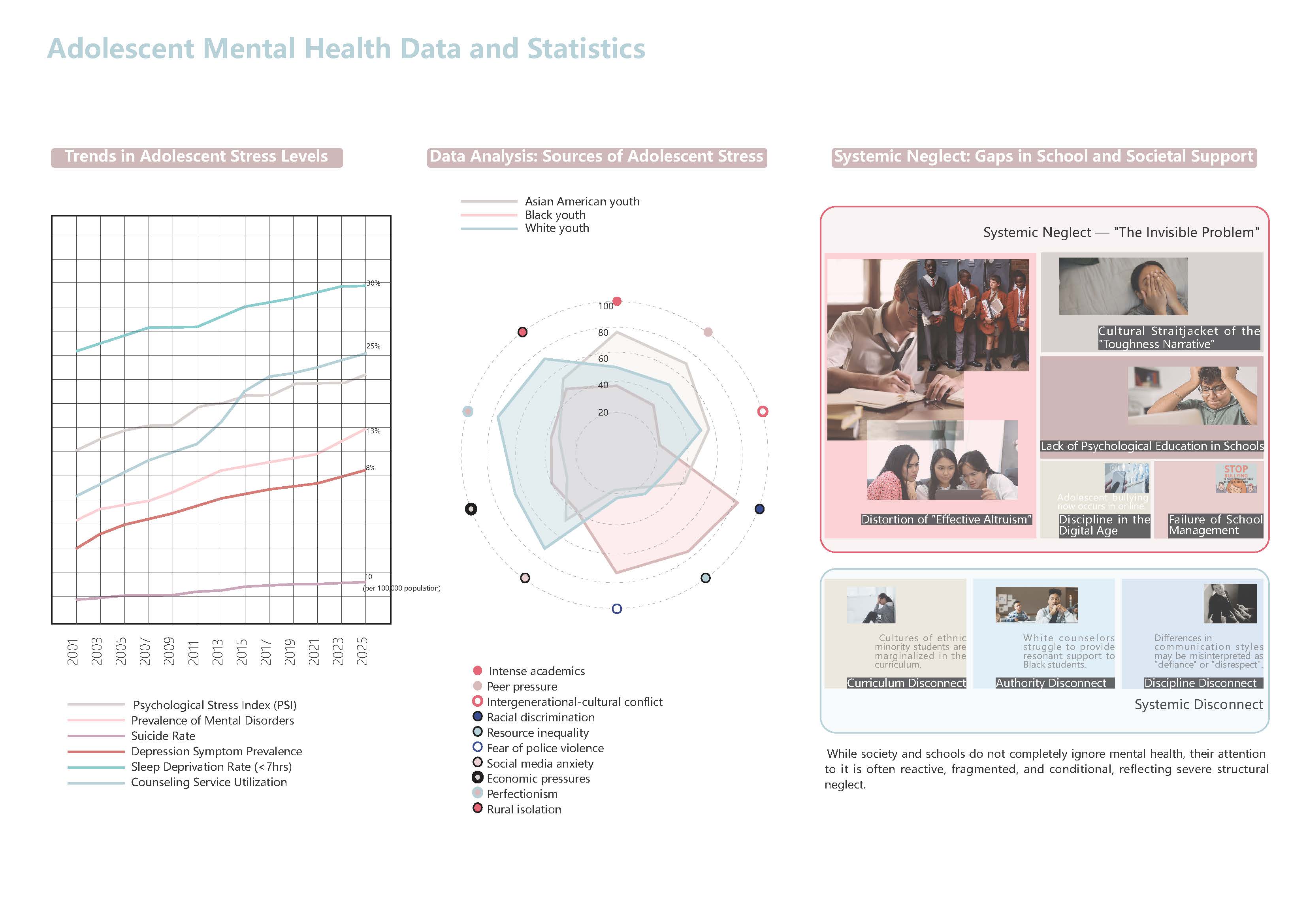A mental health nonprofit — where culture actually fits.
In school clubs and daily interactions, we observed starkly different psychological stressors among Asian American, Black, and White youth. Each group faces unique challenges—ranging from academic and racial pressures to rural isolation—that are often overlooked in generalized mental health narratives.

The research reveals three critical insights into adolescent stress. First, stress levels and mental health challenges have steadily increased over the years, with alarming rises in depression, suicide, and sleep deprivation. Second, different racial groups face distinct sources of stress: Asian American youth struggle with academic pressure and cultural stereotypes; Black youth face systemic racism and fear of violence; White youth grapple with perfectionism and rural isolation. Third, schools and society offer insufficient support. There is a systemic disconnect between institutional resources and students’ needs, including cultural mismatch, ineffective counseling, and lack of mental health education.

To address the psychological needs of adolescents from diverse backgrounds, the project proposes a multi-layered solution: an ethnicity-matched online counseling system, anonymous chatrooms for free expression, and community spaces for journaling and creative sharing. Collaborations with psychology student volunteers ensure accessible support, while peer group programs foster long-term resilience. The system aims to accompany teens from crisis to healing, helping them rediscover belonging, release pressure, and rebuild coping capacity.


Active users engaged from 5 different schools — Demonstrates the platform’s broad appeal and effectiveness across diverse communities.
Chatroom retention rate — Indicates strong user connection and a supportive environment for repeated engagement.
Psychology student volunteers participated — Highlighting successful collaboration between youth mental health advocates and aspiring professionals.
While current school-based psychological services provide foundational support, they often lack inclusivity for minority youth. This project raises critical questions about cultural representation and accessibility. In the future, we aim to advocate for multicultural mental health policy reform and collaborate with school districts to implement long-term, equity-centered psychological support systems.